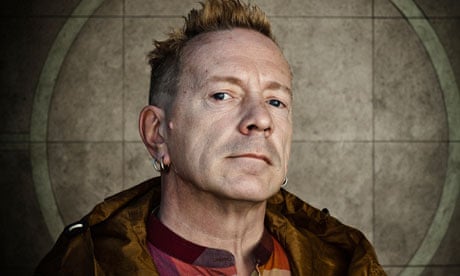The legendary band that deigns to return to active service usually deals in familiarity: they sell records and gig tickets by reaffirming what their audience already knows. Anyone requiring evidence that the return of Public Image Ltd is the exception that proves the rule should listen to Human, the fifth track on the first PiL album since 1992. It certainly sounds like PiL: the disco drums, the spiky guitar, John Lydon's inimitable, quavering two-note vocal style. It's what he's singing about that gives you pause. "I miss," opines the former Johnny Rotten, "those English roses … cotton dresses skipping across the lawn/ Happy faces when football was not a yawn/ Playing on bombsites, all the days were long."
It's deeply odd to find Lydon doing precisely what he advised us all against doing around the time of the silver jubilee; to hear the man who 35 years ago proclaimed there was no future in England's dreaming happily dreaming of England's past. But then, if any pop star has always reserved the right to be a contrary sod, it's John Lydon, who began his musical career sneeringly dismissing the idea that he wanted a musical career – "What for? I only sing out of tune, and anyway I play the violin," he replied when Malcolm McLaren tentatively inquired whether he might like to be the Sex Pistols' frontman – and got progressively less obliging from there. The return of PiL has proved a protracted exercise in not giving the people what they want. It was, he gleefully announced, entirely funded by his adverts for Country Life butter: cue outrage in the comment threads. He declined to call on bassist Jah Wobble and guitarist Keith Levene to reform the classic PiL lineup, responsible for their epochal 1979 album Metal Box; in fact, he threatened the pair with legal action in an attempt to stop them playing tracks from Metal Box live, which at least is in keeping with the atmosphere of paranoia in which that album was apparently made. In their place are guitarist Lu Edmonds and drummer Bruce Smith, both members of PiL for 1987's unloved Happy?, and bassist Scott Firth, once employed by post-punk titans the Spice Girls.
But you can admire Lydon's relentless, screw-you spirit without wanting to be in earshot of the musical results. It's a thought that clouds the mind during This Is PiL's opening title track, a lumbering riff over which Lydon belches, screams, does funny voices and belligerently repeats variations on the title. "You are now entering the PiL zone," he cries at one point, which does make you blanch a bit at the prospect of spending the next hour there. Is opening his comeback album like this another reminder of Lydon's famed cussedness, or of the one thing that the general delight at PiL's return overlooked: the fact that Lydon hasn't made a decent album in 26 years?
It happily turns out it's the former. This Is PiL really takes off with Deeper Water, a dubbed-out disco track against which Edmonds peels off a sharp descending riff and Lydon defiantly cries about refusing to drown. As he does so, the voice that once struck terror into middle England cracks and rasps, as it does throughout the album: whether Lydon is deploying his patented wail or chanting improvised lyrics in the manner of one of his beloved reggae DJs, he always sounds hoarse. Weirdly, it adds something here, counterpointing all the anger and defiance in the lyrics with an affecting frailty.
Meanwhile, the music lurches from the atonal collage of It Said That to Lollipop Opera's relentless breakbeat to Reggie Song, the closest it comes to a straightforward pop song. Its diversity isn't just held together by Lydon's voice, but by Edmonds's playing. It isn't always clear when he's using a guitar and when he's using the electric saz – a Turkish stringed instrument he played in the Mekons and Billy Bragg's backing band. Either way, there's always something otherworldly about his playing, an audible desire not to play anything anyone would expect.
Perhaps it's his presence that has re-energised Lydon after decades running on fumes creatively. Clearly something has: you do catch hints of PiL's back catalogue – The Room I Am In recalls Religion I in its spoken-word form and Four Enclosed Walls in its evocation of drugged claustrophobia – but you're more often struck by Lydon's determination to keep pushing forward into uncharted territory, to head, as he puts it on the track of the same name, for deeper water. In the process, an artist who has spent years lucratively exploiting his past with the Sex Pistols suddenly sounds like he has a future: a victory for contrarianism.

Comments (…)
Sign in or create your Guardian account to join the discussion